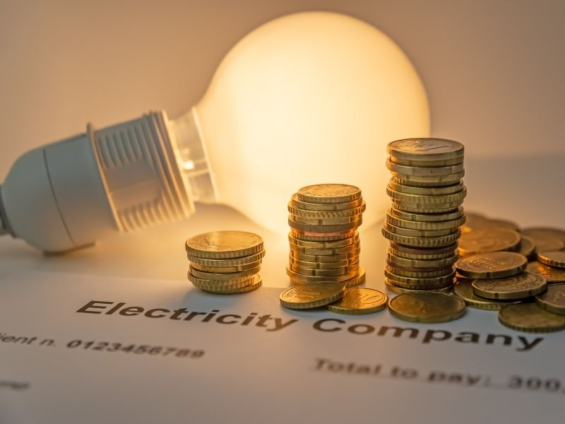Ghana continues to grapple with high electricity prices in comparison to its neighbouring countries in the Economic Community of West African States (ECOWAS), raising concerns among both businesses and residential users.
This is according to the newest National Energy Policy.
The latest revelations from the national energy policy highlight a persistent issue that has far-reaching implications for the nation's economic competitiveness and overall well-being.
According to data from the latest policy, Ghana's electricity tariffs have remained on the higher side in recent years.
The end-user tariff, which averaged 12.6 US cents per kilowatt-hour (kWh) following the load-shedding crisis in 2007, climbed even higher, reaching an average of 15.8 US cents per kWh between 2013 and 2020.
This comes on the heels of a Recent publication by energy think tank, African Centre for Energy Policy (ACEP), which also revealed that electricity tariffs in Ghana, on the heels of the country’s IMF programme, have experienced a staggering increase of about 100% in the past nine months.
The impact of these elevated electricity prices is profound, affecting the viability and competitiveness of businesses and industries across the country. High tariffs create an unfavourable business environment, hindering economic growth and potentially leading to job losses. Residential users are also burdened by these escalating costs.
The Policy admits that a major issue contributing to Ghana's high electricity prices is the lack of transparency and clarity in tariff setting.
It then recommends a review of the current tariff structure to ensure that it reflects the actual cost of electricity production.
This would involve implementing fully cost-reflective tariffs and competitively pricing electricity.
It also recommends the enhancement of the efficiency of utilities to minimize losses in the power generation and distribution process.
Addressing these issues could play a pivotal role in reducing the power sector's existing debt burden, which has been a longstanding concern.
Another concerning factor highlighted in the national energy policy is the procurement process for power generation plants as it reveals that, over the years, many of Ghana's power generation facilities have not been acquired through competitive bidding processes.
This lack of competition has resulted in significantly higher electricity generation costs, making tariffs for commercial and industrial entities considerably higher compared to those in neighbouring countries.
The policy also notes that the ramifications of these high electricity costs extend beyond the balance sheets of businesses; they impact the ability of local companies to compete effectively on a global scale. This, in turn, can lead to job losses and hinder economic progress.
In response to the persistent issue of high electricity prices in Ghana, the government has outlined a series of policy directions aimed at achieving cost-competitive electricity generation and ensuring energy security in a sustainable manner.
These objectives, as detailed in the national energy policy, seek to address the root causes of the high tariffs, and chart a path towards a more affordable and reliable energy landscape.
To address the high cost of thermal electricity generation, the government's policy direction involves the implementation of a supply plan that relies on competitive bidding for all future electricity supply procurements.
Furthermore, the government aims to enhance transparency and cost-effectiveness across the industry by developing and adopting a standardised Power Purchasing Agreement (PPA) template.
To combat the issue of excess generation capacity resulting from low patronage, the government's policy direction is focused on stimulating power demand. Initiatives include introducing electric propulsion vehicles into the economy, exploring new export markets, and establishing a competitive pricing regime designed to encourage higher levels of electricity consumption.
Recognising the potential impact of climate variability on hydroelectricity generation, the government's policy direction involves the implementation of prudent reservoir management practices at hydropower plants.
This approach is aimed at ensuring the efficient utilization of this critical renewable energy source, mitigating potential disruptions due to changing climatic conditions.
In response to the frequent breakdowns experienced by some power plants, the government's policy direction emphasizes the importance of maintaining an adequate reserve margin.
Additionally, proactive measures for preventive and corrective maintenance will be put in place to enhance the reliability of power generation facilities.
To address the relatively low generation efficiencies of thermal plants, the government's policy direction involves the use of licensing requirements to enforce adherence to efficiency standards.
Furthermore, efforts will be made to convert existing simple cycle power plants into more efficient combined cycle power plants, aiming to optimize the overall efficiency of thermal electricity generation.
Latest Stories
-
Western Region: NDC youth wing embarks on phase 2 of ‘retail campaign’
5 mins -
Action Chapel International holds annual Impact Convention in November
6 mins -
Jana Foundation urges young women to take up leadership roles
10 mins -
All set for Joy FM Prayer Summit for Peace 2024
21 mins -
Managing Prediabetes with the Help of a Dietitian
41 mins -
Joy FM listeners criticise Achiase Commanding Officer’s election comment
1 hour -
Legal Aid Commission employees threaten strike over poor working conditions
1 hour -
Ghana ranked 7th globally as biggest beneficiary of World Bank funding
1 hour -
IMF board to disburse $360m to Ghana in December after third review
1 hour -
Former Bono Regional NPP organiser donates 13 motorbikes to 12 constituencies
1 hour -
Securities industry: Assets under management estimated at GH¢81.7bn in quarter 3, 2024
1 hour -
Gold Fields Ghana Foundation challenges graduates to maximise benefits of community apprenticeship programme
3 hours -
GBC accuses Deputy Information Minister Sylvester Tetteh of demolishing its bungalow illegally
3 hours -
Boost for education as government commissions 80 projects
3 hours -
NAPO commissions library to honour Atta-Mills’ memory
4 hours

